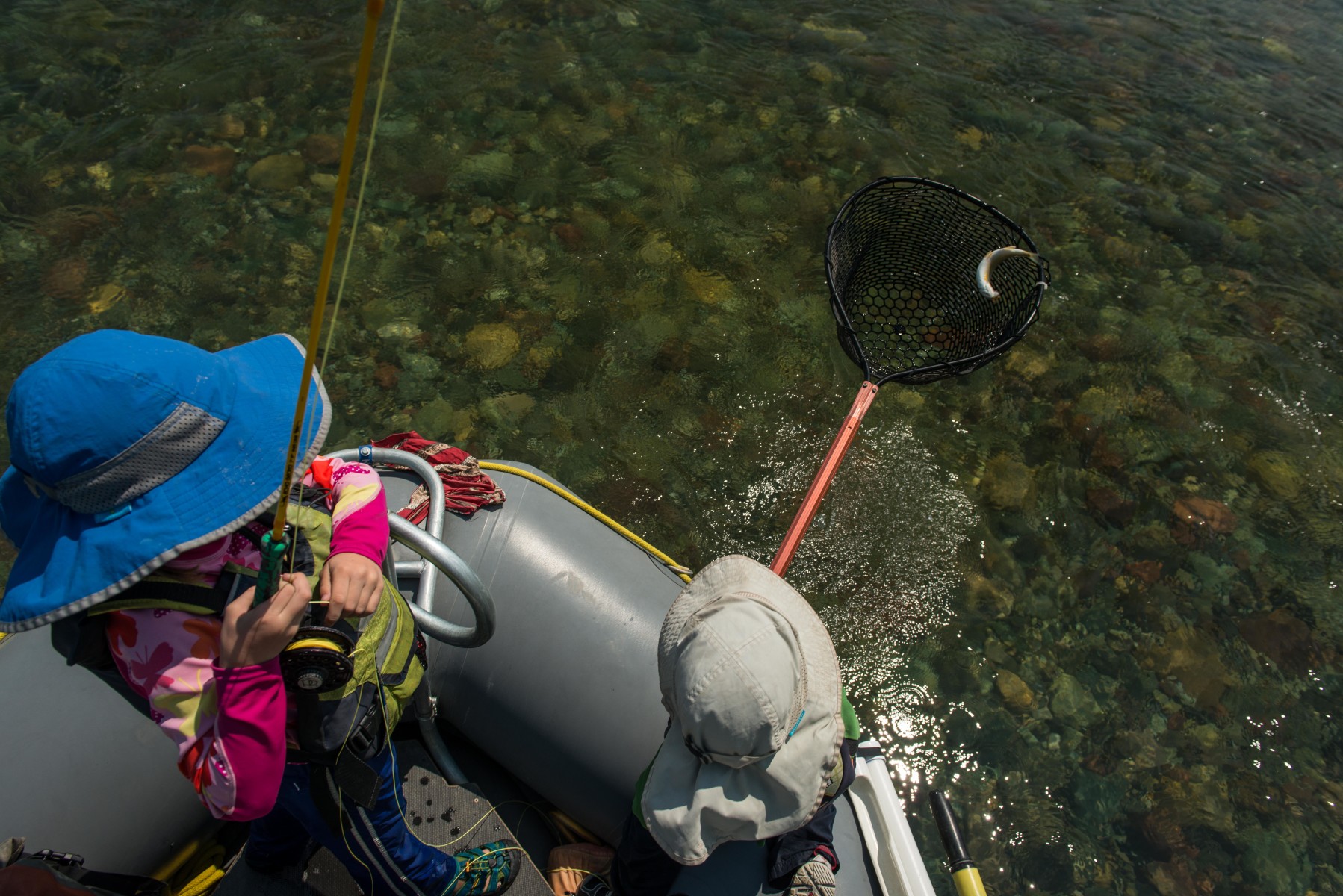3 tips for putting kids on fish

It’s a rare kindergartener that wants to fish as often, as long or as hard as mom or dad. I’m sure they’re out there, but I also know that black-footed ferrets exist. I haven’t seen either in the wild.
Which shouldn’t be surprising. It’s tough out there for little folks. The brush is higher, river pushier, and distances longer than they are for the rest of us. And let’s face it, most five years olds aren’t very good at catching fish. Taken together the challenges can lead to real frustration and, worse yet, a serious threat to the time you get to spend on the water.
Having a few strategies for keeping the squirt occupied, engaged and having fun while fishing– independent of them catching fish – is critical to everyone’s success.
Here are three that have proven priceless for me.
Net Work – As adults, we carry around preformed definitions and long established value systems. Catching a fish, for example, means casting to it, coaxing it to eat, hooking and landing it; and there are ways of completing that process which we think of as “better” than others. Kids aren’t nearly so encumbered. Until some jerk tells them otherwise, netting a fish on someone else’s line is just as fun as the alternative. In fact, as close to the action, teamwork oriented, and reliant on gross motor skills as net work is, it’s often more satisfying for squirts than running their own rods. With a little hype, hooting and hollering, I think you’ll find it’s an easy sell.
Bug Patrol – Kids are natural entomologists. And who doesn’t like a puzzle? With just a little encouragement, most of the boys and girls I know will dive right into rolling rocks and collecting specimens. As soon as they smell busy work though, you’re hosed. The key to making a bug hunt last is connecting their explorations directly to the fishing. Hand over a couple of fly boxes and ask them to pair what they’ve found with an imitation. Tie on whatever they come up with. It may actually work (and heaven knows I could use the help). If it doesn’t, at least you’ve both learned something, and now you have an excuse to send them back out on patrol.
Casting Director – Rod and line handling is a huge source of frustration for beginners, particularly those that are still growing into their bodies. By acting as a casting surrogate for the kiddo though – letting him or her direct where you put the fly – they can set aside for a little while the irksome mechanics, and think instead about reading water. You can start by alternating casts if needed; you choose, then they choose, back and forth. But most kids will hone in on the likely water quicker than you might expect , and before long may be spotting honey-holes you’d overlooked. Meanwhile they get to be a part of the action, and the satisfaction of success, in a way that stokes their appetite for the next time out.

